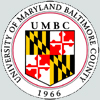| |||||||||||||||||||
Tips:  Range on the Protein: Protein ID Protein Position Domain Position: 
|
|---|
Weblogos are Copyright (c) 2002 Regents of the University of California
| DMDM_info@umbc.edu | 1000 Hilltop Circle, Baltimore, MD 21250 | Department of Biological Sciences | Phone: 410-455-2258 |




 Glycerophosphodiester phosphodiesterase domain of Streptomycin coelicolor (GlpQ1) and similar proteins. This subfamily corresponds to the glycerophosphodiester phosphodiesterase domain (GDPD) present in a group of putative bacterial and eukaryotic glycerophosphodiester phosphodiesterases (GP-GDE, EC 3.1.4.46) similar to Escherichia coli periplasmic phosphodiesterase GlpQ, as well as plant glycerophosphodiester phosphodiesterases (GP-PDEs), all of which catalyzes the Ca2+-dependent degradation of periplasmic glycerophosphodiesters to produce sn-glycerol-3-phosphate (G3P) and the corresponding alcohols. The prototypes of this family include putative secreted phosphodiesterase encoded by gene glpQ1 (SCO1565) from the pho regulon in Streptomyces coelicolor genome, and in plants, two distinct Arabidopsis thaliana genes, AT5G08030 and AT1G74210, coding putative GP-PDEs from the cell walls and vacuoles, respectively.
Glycerophosphodiester phosphodiesterase domain of Streptomycin coelicolor (GlpQ1) and similar proteins. This subfamily corresponds to the glycerophosphodiester phosphodiesterase domain (GDPD) present in a group of putative bacterial and eukaryotic glycerophosphodiester phosphodiesterases (GP-GDE, EC 3.1.4.46) similar to Escherichia coli periplasmic phosphodiesterase GlpQ, as well as plant glycerophosphodiester phosphodiesterases (GP-PDEs), all of which catalyzes the Ca2+-dependent degradation of periplasmic glycerophosphodiesters to produce sn-glycerol-3-phosphate (G3P) and the corresponding alcohols. The prototypes of this family include putative secreted phosphodiesterase encoded by gene glpQ1 (SCO1565) from the pho regulon in Streptomyces coelicolor genome, and in plants, two distinct Arabidopsis thaliana genes, AT5G08030 and AT1G74210, coding putative GP-PDEs from the cell walls and vacuoles, respectively. No pairwise interactions are available for this conserved domain.
No pairwise interactions are available for this conserved domain.
















